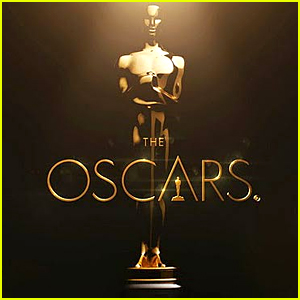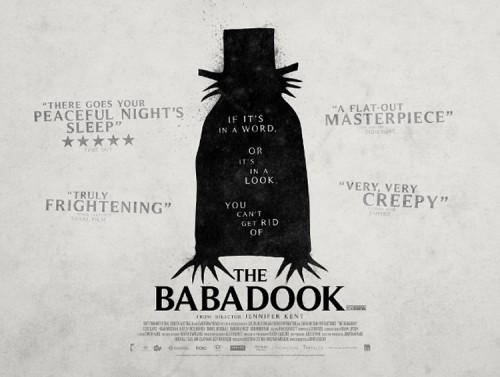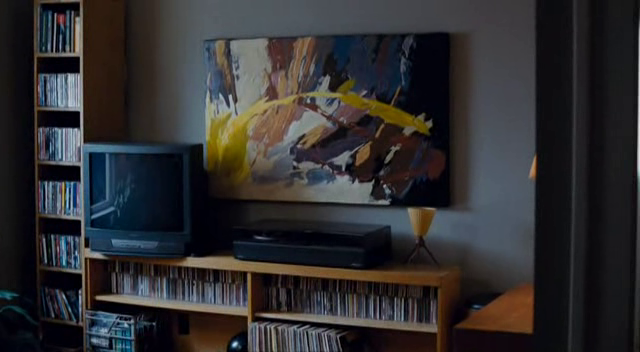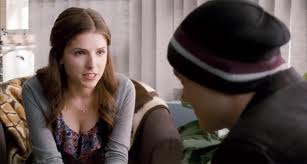This is a guest post by Josh Ralske.
Here’s the sad, secret truth of every Oscars telecast: There are no winners. Ever. Especially not the audience.
This year’s show — at least, the prefabricated part of the show — peaked early. Neil Patrick Harris does a fairly charming opening musical number with the supremely talented Anna Kendrick, celebrating the movies (of all things), and gets hilariously interrupted by Jack Black (and seriously, thank goodness for Jack Black and his endless comic energy, his wholehearted commitment to whatever bit he’s doing — please let him host one year) who sings a funny, pointed rant calling out Hollywood these days as all about superhero movies and sequels and what the Chinese market will buy. Undeniable truths, and naturally he gets thrown off the stage. In any case, that is no longer the Hollywood that the Oscars celebrate. The blockbusters, for the most part, went home with nothing. Even the highly touted American Sniper, seen by many as a potential upset winner for Best Actor and Best Picture, only got one tech award. Which is a good thing, by my measure. The movie is an odious celebration of a man — if we judge him by his own words — completely unworthy of such.

In any case, the awards mostly celebrated smaller, more idiosyncratic independent films. Which is a good thing, generally, even if the near sweep for Birdman smacked of some intense navel gazing. As JB alluded to, Hollywood is currently fixated on blockbusters, and mid-ranged “cinema of quality”-type movies like The Imitation Game and The Theory of Everything need the buzz of awards season to generate moviegoer interest and turn a profit. I didn’t love either of those films, but I think they both have their virtues, whether it’s Imitation‘s acknowledging Alan Turing’s persecution and highlighting the important role women like Joan Clarke played in WWII code-breaking, or Theory‘s sporadic directorial flourishes, which make one wish James Marsh had taken a less literal approach to the material. And of course, both films feature excellent performances, though Eddie Redmayne’s Oscar-winning perfect mimicry of Stephen Hawking has less dramatic impact than any other performance in the category.
It was an upset only because the pundits were wrong, seeing it as a battle between Michael Keaton and Bradley Cooper, when we all know that as far as the Oscars are concerned, the able-bodied actor playing a differently abled person, particularly a real person, always — ALWAYS — wins. That theory also held up with Julianne Moore beating out former Oscar winner Marion Cotillard, who gave the best performance of her career in the brilliant Two Days, One Night, because clearly by the Academy’s high standards, early onset Alzheimer’s is a “real” disability, while depression is not, and the quality of the movie that surrounds the performance is secondary. As someone who has suffered a loss to Alzheimer’s in his own family, and loved Sarah Polley’s Away From Her (for which Julie Christie was nominated for an Oscar, and lost to Cotillard), that melodramatic clip they showed on the telecast of Still Alice is all I need to see of it.

Despite a couple of minor surprises, the show was mostly even duller than usual. Actors, including some great actors, blandly read their introductions from the teleprompters. The one exception, Terrence Howard, was apparently the victim of a technical malfunction. Either that, or he was simply overcome with emotion introducing a clip from Whiplash, but frankly we hope it was the former. NPH’s jokes were mostly bad puns, but he also managed to insult former winner Octavia Spencer, embarrass the snubbed David Oyelowo, and worst of all, smear Edward Snowden with a stupid quip following Citizenfour‘s well-deserved win for Best Documentary Feature. This was especially galling as brilliant documentarian Laura Poitras was one of the few women nominated for anything in a non-gendered category. NPH’s jokey allusions to the unbearable whiteness of the proceedings did little to alleviate our feelings of sadness and disgust over said. Then there was his 11th hour (or at least it felt that way) reading of a long list of weak jokes about the telecast, which he’d spent all night setting up. Seriously, a long-ass way to go for that dumb list, and by that point most of us still watching just wanted to go the fuck to sleep.
Similarly, Lady Gaga’s straightforward rendering of a melody from The Sound of Music was nicely performed, but poorly timed. If the producers need to include such extraneous musical numbers, they really need to frontload them. Once the broadcast hits the three hour mark, no one wants to see anything but awards.

Then there was Best Picture presenter Sean Penn’s dumb joke asking who gave Birdman mastermind Alejandro González Iñárritu, who also won for Best Original Screenplay and Best Director, his green card. Iñárritu claims he found Penn’s joke hilarious, but seriously folks, who wants what is possibly the biggest moment of his career upstaged by such shenanigans? Penn also should have realized that there were many in the millions of viewers who would take his insult at face value. That’s the kind of joke you only make in private. And only if you’re an asshole.
There were other highlights — mostly provided by awardees who shared their personal stories and points-of-view — and other lowlights, mostly provided by John Travolta. Seriously, this was supposed to be Travolta’s chance to redeem himself after last year’s embarrassing “Adele Nazeem” gaffe. Instead, his awkwardly entitled touchy-feely behavior with Scarlett Johansson on the red carpet, and onstage with Idina Menzel, while jokingly apologizing to her for his slip, just highlighted what a bizarre public figure he’s become. Scientology doesn’t seem to be helping him much these days.

Beyond that, what stood out seemed like genuine heartfelt moments. John Legend and Common delivered a spirited performance of “Glory” from snubbed director Ava DuVernay’s Selma, and an equally impassioned acceptance speech, notable for its intersectionality, when they won. They brought up Hong Kong’s fight for democracy, Charlie Hebdo, and America’s shameful prison-industrial complex. “Selma is now” is a message many need to hear, obviously including their white liberal Hollywood audience.
Megan Kearns makes some excellent observations about that, about Imitation Game screenwriter Graham Moore’s affecting acceptance speech, and about Oscar winner Patricia Arquette’s controversial remarks backstage. Arquette made a public stand on an undeniably important issue, and seemingly spoke off the cuff, so while I empathize with those who were offended, I’m inclined to be more forgiving of the tone deafness of her remarks. Beyond that, those moments of what appeared to be genuine sincerity helped get me through the slog of that endless telecast.

Josh Ralske is a freelance film writer based in New York. He has written for MovieMaker Magazine and All Movie Guide.























